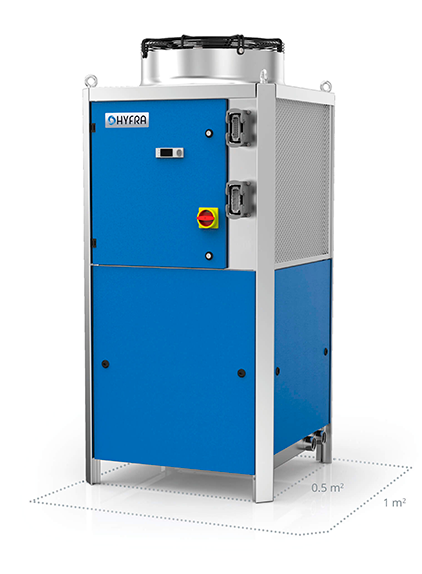Introduction
Machine Tool Cooling Systems become indispensable and there are designed to regulate and stabilize the internal temperatures of machine tools, ensuring performance consistency, extended equipment life, and minimized downtime. In today’s precision-driven manufacturing landscape, machine tools like CNCs, lathes, milling, and grinding machines play a vital role in producing high-accuracy components. These machines, however, operate under intense mechanical and thermal loads, generating heat from spindles, hydraulic systems, motors, and cutting operations. This excess heat, if unmanaged, can distort parts, damage components, and lead to machine failure.
Why Are Cooling Systems Important for Machine Tools?
When a machine tool runs for long hours or at high RPM, friction and motor activity generate significant heat. If not dissipated, this heat leads to:
- Thermal Expansion: Metal parts expand, causing dimensional inaccuracies in finished components.
- Component Wear: Bearings, seals, and motors wear out faster under thermal stress.
- Lubrication Breakdown: Oils and coolants lose their effectiveness at higher temperatures.
- Electrical Damage: Heat can cause malfunctions or failures in sensitive control electronics and sensors.
A machine cooling system mitigates these risks, ensuring temperature stability, thereby improving productivity, safety, and component quality.
Types of Cooling Systems Used in Machine Tools
Different machine operations require different cooling solutions. Below are the most commonly used types:
Coolant Chillers
Used for maintaining the temperature of coolant fluids in CNC machining and cutting processes. They prevent coolant degradation and help in precise thermal control at the tool-workpiece interface.
Spindle Coolers
Spindles in high-speed machines are prone to overheating. These coolers maintain a consistent spindle temperature, ensuring smooth rotation, minimal vibration, and high machining accuracy.
Hydraulic Oil Coolers
Used to keep hydraulic fluid temperatures within operational limits. These are crucial in machines that use hydraulics for tool movement or clamping operations.
Electrical Panel/Enclosure Coolers
These units cool down control cabinets, which house sensitive electronics. Stable enclosure temperatures ensure the longevity and accuracy of sensors, PLCs, and drives.
Air/Water Chillers
Versatile chillers suitable for multi-point cooling, such as for lubricants, spindle motors, and servo drives. They are available in compact or industrial sizes depending on cooling load.
Key Benefits of Machine Tool Cooling Systems
Implementing a well-designed cooling solution provides multiple operational advantages:
- Improved Dimensional Accuracy
– Controlled temperature prevents thermal distortion of workpieces and cutting tools. - Increased Machine Life
– Components like spindles, motors, and hydraulic systems are preserved under ideal temperatures. - Minimized Downtime
– Reduces unexpected breakdowns, keeping production continuous. - Energy Efficiency
– Machines run more efficiently at optimal temperatures, reducing energy consumption. - Lower Maintenance Costs
– Fewer breakdowns and longer intervals between servicing save money in the long run. - Fluid Stability
– Coolants, oils, and lubricants last longer and perform consistently, enhancing cutting performance.
Applications of Machine Tool Cooling Systems
These systems are integrated into a wide range of industrial tools and processes, including:
- CNC Machining Centers – Used for high-speed, high-precision cutting and milling operations.
- Turning and Milling Machines – Benefit from stable spindle and work zone temperatures.
- Grinding Machines – Require cooling for both tool and part to maintain tolerance.
- EDMs (Electrical Discharge Machines) – Need coolant temperature control for precise metal erosion.
- Injection Molding Machines – Often have built-in hydraulic and barrel chillers.
- Servo Motor-Driven Automation Equipment – Where thermal balance is key to speed and precision.
Conclusion
Machine Tool Cooling System is not just an accessory — it’s a vital performance enhancer for any modern machining operation. By maintaining thermal stability, it ensures:
- Consistent machining precision
- Greater equipment reliability
- Better tool life
- Reduced operation and maintenance costs
Investing in the right cooling system means greater uptime, longer machine life, and higher-quality output. For manufacturers aiming for excellence, integrating a robust cooling solution is a strategic advantage.

